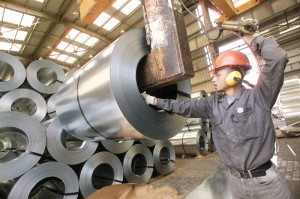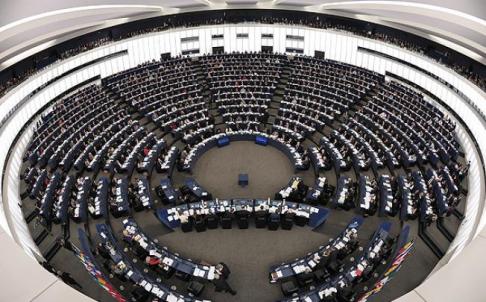
(DNE FILE PHOTO)
Local steel mills held a meeting Sunday with Industrial Development Authority (IDA) Chairman Ismail Gaber to discuss recent energy price increases and their effect on local producers, as well as means of compensating for the adjustment.
The government had recently increased natural gas prices by $3 for the iron and steel industry, bringing the total price to $7 per million BTUs.
Chairman of Egyptian Steel Ahmed Abou Hashima meanwhile said that raising energy prices for steel “has opened the market to imported steel”, and questioned the decision to raise prices so dramatically for steel plants while only lifting the price to $4.5 for the petrochemical and fertiliser industries.
“These industries achieve large profits and export nearly half of production… it is not accurate to say that the goal is to maintain fertiliser prices in the domestic market… in this way the government is subsidising foreign companies,” he said. “Rolling mills’ costs increased by approximately EGP 50 and direct rolling iron factories by EGP 210 following the energy price increase… the factories cannot increase the final prices of their products because the consumer will resort to purchasing imported steel at lower prices.”
Abou Hashima also stressed the importance of the industry in his criticism. “How does the government leave the strategic iron industry and its factories that spend billions of pounds to face unfair competition from Turkish or Chinese steel with no customs protection?”
The government has not issued any decisions that benefit the industry, he added, despite their approving of economic reform and subsidy reform plans, and called for the implementation of measures to protect the industry.
“The government must impose customs duties on imported iron products, which currently enter the Egyptian market without any customs. Customs duties are levied on iron production inputs… or they should levy import fees to protect the market from drowning in imported steel, especially the Turkish variety,” he added.
He pointed out that these decisions may lead to a collapse or suspension of the industry: “Some factories are seriously threatened with stoppages and cannot complete their expansionary plans.”
Manager of the Chamber of Metallurgical industries Mohamed Hanafi said that he, Chairman of the Chamber Gamal Al-Garhy, and Abou Hashima met with Ismail Gaber and expressed their refusal of these huge price increases that have made them vulnerable to considerable losses.
“After gas increased to $7, electricity to EGP 0.34 outside of peak times and EGP 0.51 at peak times [beginning at 6pm], costs for rolling mills increased to EGP 65 and EGP 250 per tonne for factories that manufacture iron starting with raw materials through the final product,” Hanafi said.
He said an agreement to study the impact of the energy price increases in detail was made with the government in order to generate an appropriate mechanism to protect factories from closure or unfair competition with imported steel.



